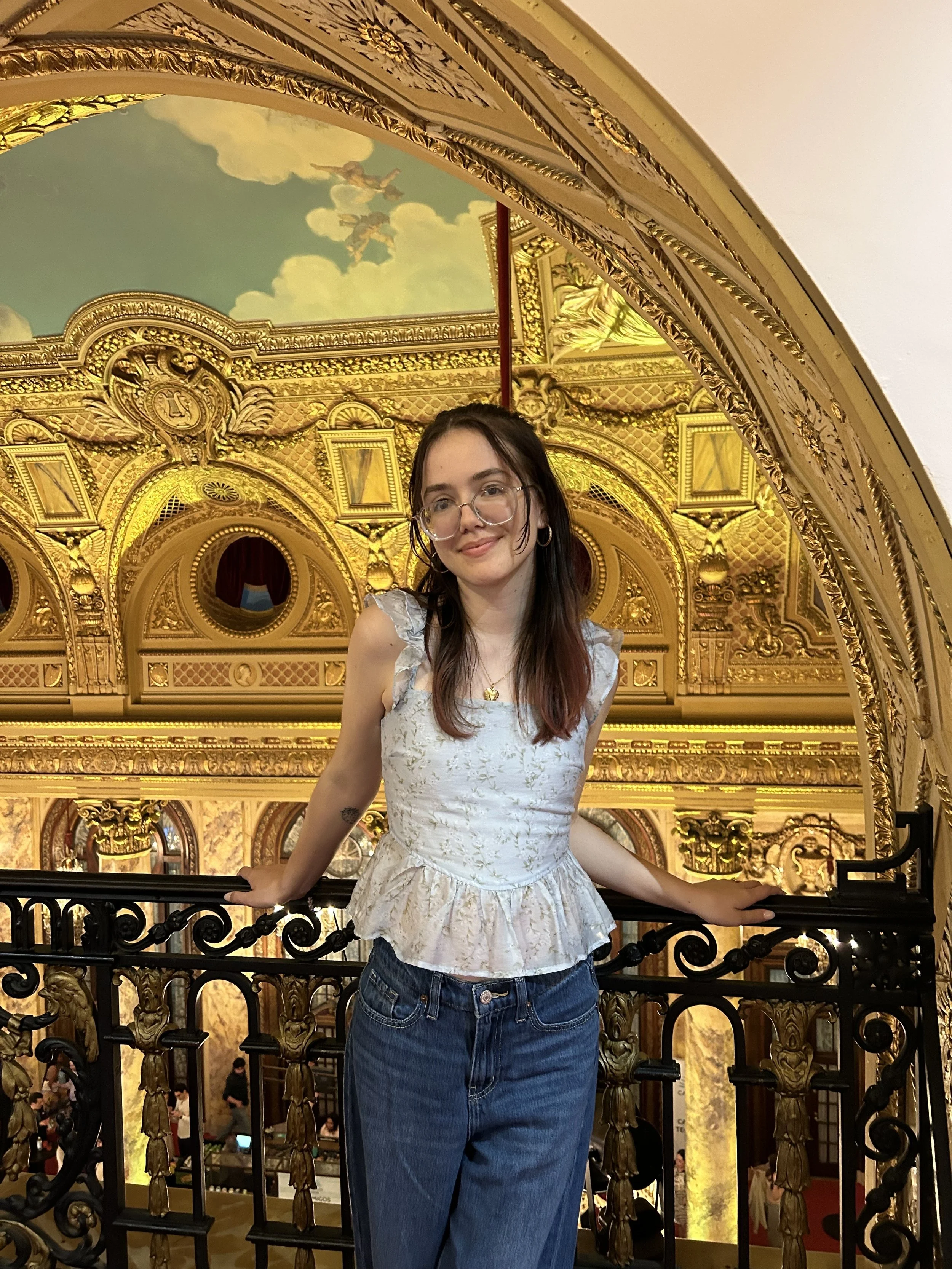When Hell Freezes Over
by Emma L. Baker
“I’m not cheating on you,” I whisper, my cold wet mouth pressed hard against the receiver like sticky lips against a neck. Joanna is around here somewhere, bound to burst into the walk-in freezer any minute, probably searching for a refill of ranch dressing for table thirty-four, and the fear of being seen settles in my stomach like a heavy chunk of ice.
The man on the phone says loudly, clearly: “Nothing you say can change my mind. I didn’t leave that mark on you. It’s too small, too delicate. My mouth is wide and my teeth are sharp enough to leave something darker.”
I draw in a shaky breath, gearing up to defend myself, but he’s faster. “You’re lucky I still want someone like you,” he says. “We’ll break up when hell freezes over.”
Click. My hand, gripping the phone, falls uselessly to my side.
Joanna comes in, cotton candy pink hair up in a messy bun. She blinks, her amber eyes flicking from me to the ranch dressing, then back to me again. “What’s with the look?”
“What look?” I ask. I hide my phone behind my back like a child.
“You have this look on your face. Like you just realized something.”
Joanna steps closer, studies me. She’s beautiful. I wonder if the man on the phone was right after all. Maybe I did cheat on him. Maybe I let Joanna press her red lips against my neck, let her erase it from my memory afterwards.
I swallow guilt, thick down my throat.
The line cook, Yonathan, twists his head into the freezer. “Are you two fucking in here?”
“You wish, perv,” Joanna bites back. “Leave us alone.”
“I need Mahi-Mahi.”
“We 86’d Mahi-Mahi, like, forty minutes ago.” Joanna knocks on his head like a door. “Do you have a brain in there?”
“Yeah, it’s just full of narcotics.” Yonathan turns to me. “Oh, Liz. Some guy upstairs is asking for you.”
My mouth goes bone dry. “What?”
Yonathan disappears.
Joanna turns to me. Gestures just above my shoulder. “My table needs ranch.”
I barely breathe. “Right.”
“Come bring ranch to my table with me.”
I cling to her arm like condensation on a sweaty glass. Up the stairs, through the kitchen. I hear the man before I see him. He’s singing my name as Joanna leads me out into the dining room, linked arms leading me to her table. A family of four.
Liiiiiiz. Liiiiiiiiiz. LIIIIIIIIIIIIIIIIIIIIIIIIZ.
The wife snorts. “Lucky Liz.”
Joanna’s grip on my arm tightens in a way that is meant to be comforting, but the sensation coils around me like a snake, preparing me to be eaten.
LIZ.
The restaurant startles into quiet. Eyes flicker. Curious murmurs begin. I turn to the man because I can’t do anything else. The man is holding an obnoxious arrangement of flowers in explosive yellow and orange and red, cradling it like a baby. “I love you Liz. I’m sorry for everything. I know that all the marks on you are mine.”
Laughter ripples throughout the dining room. Searing hot embarrassment cuts through my core. I want to say something, but my feet are welded to the wood beneath them.
“I want to commit to you,” he goes on. “I want to kiss you every day. I want to make you the happiest person ever. Which is why—” The man kneels down. The whole thing is escalating quick. Woop-woops erupt from every corner of the dining room, echoing in my head like the man’s voice itself, like sounds that will haunt me every day of my life. “Liz, Lizzy-Liz dearest, will you marry me?”
The world ends. This fucking humiliation ritual. The man hates me and this proves it and my eyes are watering from the fire he set inside of my belly.
I open my mouth.
Joanna, somewhere behind me: “Don’t.”
I throw up. Not vomit or bile or strings of spit. I throw up ice. Chunks of it, cubes of it, shards sharp enough to cut diamond. The ice slices through the man’s head and cuts up his body until he is nothing more than blood and skin. His blood is the same shade as Joanna’s lipstick and it makes me want to kiss the liquid pooling on the sticky restaurant floor.
He dies a fleshy pile. The petals of the bouquet swirl around in his mush. My body, ripe and hot with humiliation, cools down, freezing over like hell should have a long time ago.
About the Author
Emma L. Baker (she/they/he) is a senior at Wellesley College currently living and working in Boston. Their work has been published in fifth wheel press, JAKE, and The Wellesley Review. She hates Twitter/X but will never get off of it and you can find him on that evil app – @poetrylovebot.
